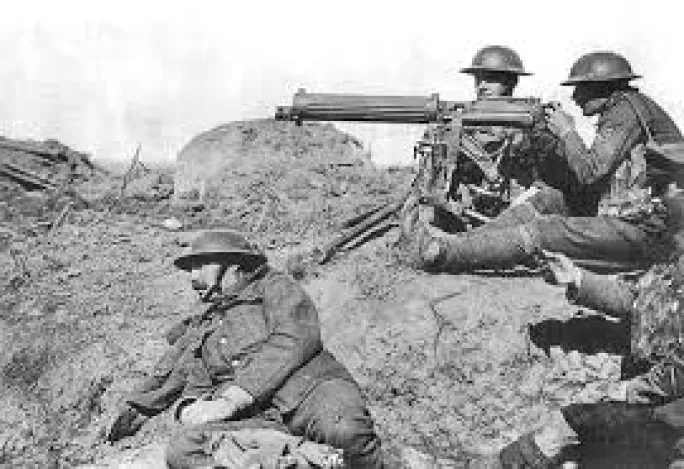Skirmishes over the use of the First World War as a political football
Many had hoped that this year’s centenary of the First World War would be marked by dignified reflection, but already the conflict has sparked a bitter war of words.
Education secretary for England Michael Gove and his opposition counterpart Tristram Hunt clashed on the subject over the weekend, with the Labour MP accusing the former of using the First World War as a political football.
The debate illustrates just how controversial and emotive the subject of First World War teaching is for teachers, historians and the wider public.
The row began last week when the Daily Mail published an article by Mr Gove condemning the “left-wing myths” peddled by university academics and the hit television comedy Blackadder. These are changing how the public views the war and particularly how it is taught in schools, the article says.
“The conflict has, for many, been seen through the fictional prism of dramas such as Oh! What a Lovely War, The Monocled Mutineer and Blackadder, as a misbegotten shambles - a series of catastrophic mistakes perpetrated by an out-of-touch elite. Even to this day there are left-wing academics all too happy to feed those myths,” Mr Gove writes.
He goes on to argue that instead the conflict was a “just war” in response to the “ruthless social Darwinism of the German elites, the pitiless approach they took to occupation”.
The education secretary’s remarks resulted in a bitter rebuke from Mr Hunt, himself a historian, who penned his own piece in The Observer admonishing the Conservative MP for using the centenary of the war to “sow political division”.
In his article, the shadow education secretary describes Mr Gove’s comments as “ugly”, adding that they detract from what should be a time for national reflection and respectful debate.
“There was always a fear that the timing of the anniversary alongside the May 2014 European parliament elections and the rise of UKIP [the UK Independence Party] could undermine a dignified response to the events of 1914-18,” he says. “Yet few imagined the Conservatives would be this crass.”
Mr Gove’s comments also drew criticism from Sir Tony Robinson, who played the character of Baldrick in Blackadder. The Labour party member and former actor said that Mr Gove had made a “very silly mistake”.
“It’s not that Blackadder teaches children the First World War. Ultimately, if you think about it, what [Gove is] really doing is just slagging off teachers. I don’t think that’s professional or appropriate,” Sir Tony told Sky News.
However, Mr Hunt’s response has led to calls for his resignation. Writing in the Daily Telegraph, Boris Johnson, the Conservative Mayor of London, described Mr Hunt’s response as “tripe”.
“If Tristram Hunt seriously denies that German militarism was at the root of the First World War, then he is not fit to do his job, either in opposition or in government, and should resign.”
The manner in which the war is viewed and taught is currently being re-evaluated as Europe prepares to commemorate the centenary of its declaration in 1914. Many of the commonly held beliefs about the Great War - including the “lions led by donkeys” argument that the soldiers were betrayed by the incompetence of their officers - are being reassessed.
It is thought that changes to the national curriculum will allow greater scope for teachers to reinterpret events such as the First World War. The issue was addressed in November by TES when history teacher John Blake warned of the problems of allowing the war to be taught as a “moral tale” rather than a historical event.
“Teachers often complain about market ideology being poured into their classrooms but it is equally as dogmatic to maintain that the only possible lesson to be learned from the 1914-18 hostilities is about the horrors of war,” Mr Blake wrote.
Questions for pupils
1. What does the term “just war” mean? Is war ever “just”?
2. Discuss why these debates have arisen.
3. In your opinion, should teachers be allowed to teach topics such as war in whichever way they choose? Justify your response.
4. What are the wider implications of this debate? Are Gove and Hunt simply discussing the First World War, or is it more complex than that?
Resources
The First World War in the primary classroom:
Advice, opinions and resources about how - or indeed whether - to teach this potentially-distressing topic to primary students.
The First World War in the secondary classroom:
Keep reading for just £1 per month
You've reached your limit of free articles this month. Subscribe for £1 per month for three months and get:
- Unlimited access to all Tes magazine content
- Exclusive subscriber-only stories
- Award-winning email newsletters




